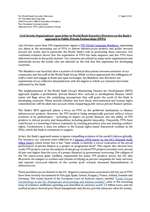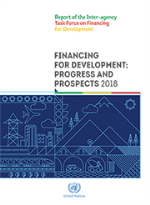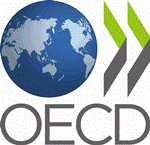Published on Tue, 2018-04-17 15:40
Last October, more than 150 organisations signed a PPP Global Campaign Manifesto, expressing our alarm at the increasing use of PPPs to deliver infrastructure projects and public services around the world, and in particular the World Bank’s role in promoting these contracts. Our combined evidence shows that the experience of PPPs has been negative, and few PPPs have delivered results in the public interest. Our concerns are echoed by many more organisations and individuals across the world, who are alarmed by the risk that this represents for developing countries. |
Published on Mon, 2018-04-16 00:00
The Indian state government of Tamil Nadu this year presented a Gender Budget Statement as part of the annual budget documents, quantifying the allocations that will benefit women during this fiscal year. Finance Secretary K. Shanmugam said it is the first time such an exercise has been undertaken. Kamakshi Sundaramurthy, senior researcher of Social Watch Tamil Nadu, said the gender budget does not address the needs of sub-categories among women, such as those from among the minorities, Dalits and sub-castes. “These women need better education, healthcare and hostel facilities. Employment is also critical for their empowerment. They need the gender budget more than any of us but remain excluded,” Ms. Sundaramurthy said. |
Published on Fri, 2018-04-13 00:00
Short-termism impedes progress of hundreds of millions of people. The prospects of around 800 million of the world’s poorest people remain dire. The global economy is experiencing a moderate upturn, and momentum around sustainable investing is growing, the UN said today. But the vast majority of investment is still short-term oriented and commitments by the international community to create sustainable economies are not being met. |
Published on Thu, 2018-04-12 00:00
While Public-Private Partnerships (PPPs) have the potential to achieve faster policy implementation and ensure good maintenance standards, an audit of such projects in the European Union shows "widespread shortcomings and limited benefits", says a Special Report (09/2018) by the EU Court of Auditors. The report of the Luxembourg-based EU Court of Auditors, dated 20 March, became available here last week. |
Published on Wed, 2018-04-11 14:43
Figures released on 10 April by the Federal Council show that Switzerland has clearly missed its own development assistance target. The country is thus moving further away from the international goal of allocating 0.7% of gross national income to development funding. While this allocation remained just about stable across OECD countries, in Switzerland it dropped from 0.53% to 0.46%. A hefty 14% contraction. |
SUSCRIBE TO OUR NEWSLETTER







